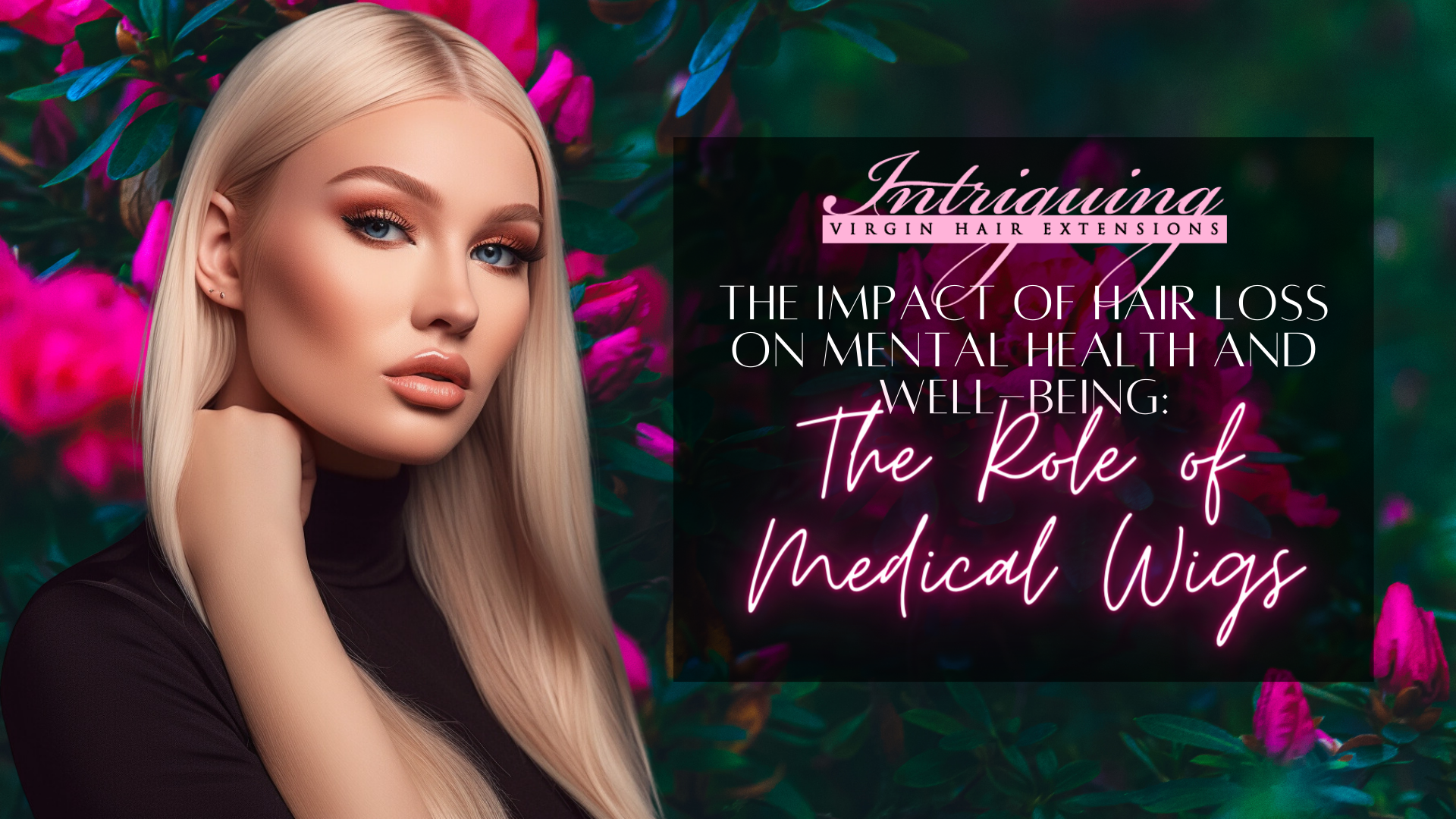The Impact of Hair Loss on Mental Health and Well-Being: The Role of Medical Wigs

Hair loss is a common condition that affects millions of people worldwide, regardless of age, gender, or background. Beyond its physical manifestations, hair loss can have a profound impact on an individual's mental health and overall well-being. In this blog, we will explore the emotional consequences of hair loss and how the use of medical wigs can play a crucial role in restoring confidence and promoting mental well-being.
The Psychological Effects of Hair Loss:
Losing one's hair can be a distressing experience, leading to a range of emotional challenges. Hair is often considered a symbol of beauty, youthfulness, and vitality, making its loss a blow to one's self-esteem and body image. Individuals may feel self-conscious, unattractive, and even suffer from low self-confidence. Hair loss can also lead to feelings of social anxiety, withdrawal, and depression, as individuals may avoid social situations due to their perceived physical appearance.
The Importance of Mental Health:
Mental health is an integral part of overall well-being, and its impact on our lives should not be underestimated. When hair loss becomes a significant source of distress, it can negatively affect various aspects of one's life, including personal relationships, professional opportunities, and overall quality of life. Addressing the emotional toll of hair loss is crucial for restoring a sense of normalcy and promoting a positive mental state.
Understanding Medical Wigs:
Medical wigs, also known as therapeutic wigs, are specifically designed for individuals experiencing hair loss due to medical conditions or treatments such as chemotherapy, alopecia, or other underlying health issues. These wigs are crafted with high-quality materials to resemble natural hair, providing an effective solution for those seeking to regain their appearance and self-assurance.
The Impact of Medical Wigs on Mental Well-Being:
Restoring Confidence: Medical wigs offer individuals the opportunity to reclaim their appearance and regain a sense of normalcy. The ability to have hair that looks and feels natural can significantly boost self-confidence, allowing individuals to face the world with greater positivity.
Promoting Social Engagement: Hair loss can lead to social isolation and a reluctance to participate in social activities. By wearing a medical wig, individuals can feel more comfortable and confident in social settings, enhancing their overall social engagement and quality of life.
Improving Emotional Well-Being: The transformative power of medical wigs goes beyond physical appearance. They can positively impact an individual's emotional well-being by reducing anxiety, boosting self-esteem, and fostering a positive body image. This improved mental state can contribute to a healthier mindset and overall mental well-being.
Finding the Right Wig: When considering a medical wig, it is essential to seek professional guidance from hair specialists or medical practitioners experienced in dealing with hair loss. These experts can help individuals select a wig that matches their style, preferences, and comfort level. Additionally, they can offer advice on wig care, maintenance, and styling techniques to ensure a seamless and enjoyable experience.
Hair loss can significantly impact an individual's mental health and overall well-being, affecting their self-esteem, body image, and social interactions. Medical wigs serve as a valuable tool in addressing the emotional consequences of hair loss by restoring confidence, promoting social engagement, and improving emotional well-being. By embracing the transformative power of medical wigs, individuals experiencing hair loss can regain their sense of self and embrace life with renewed vitality and positivity.




Comments